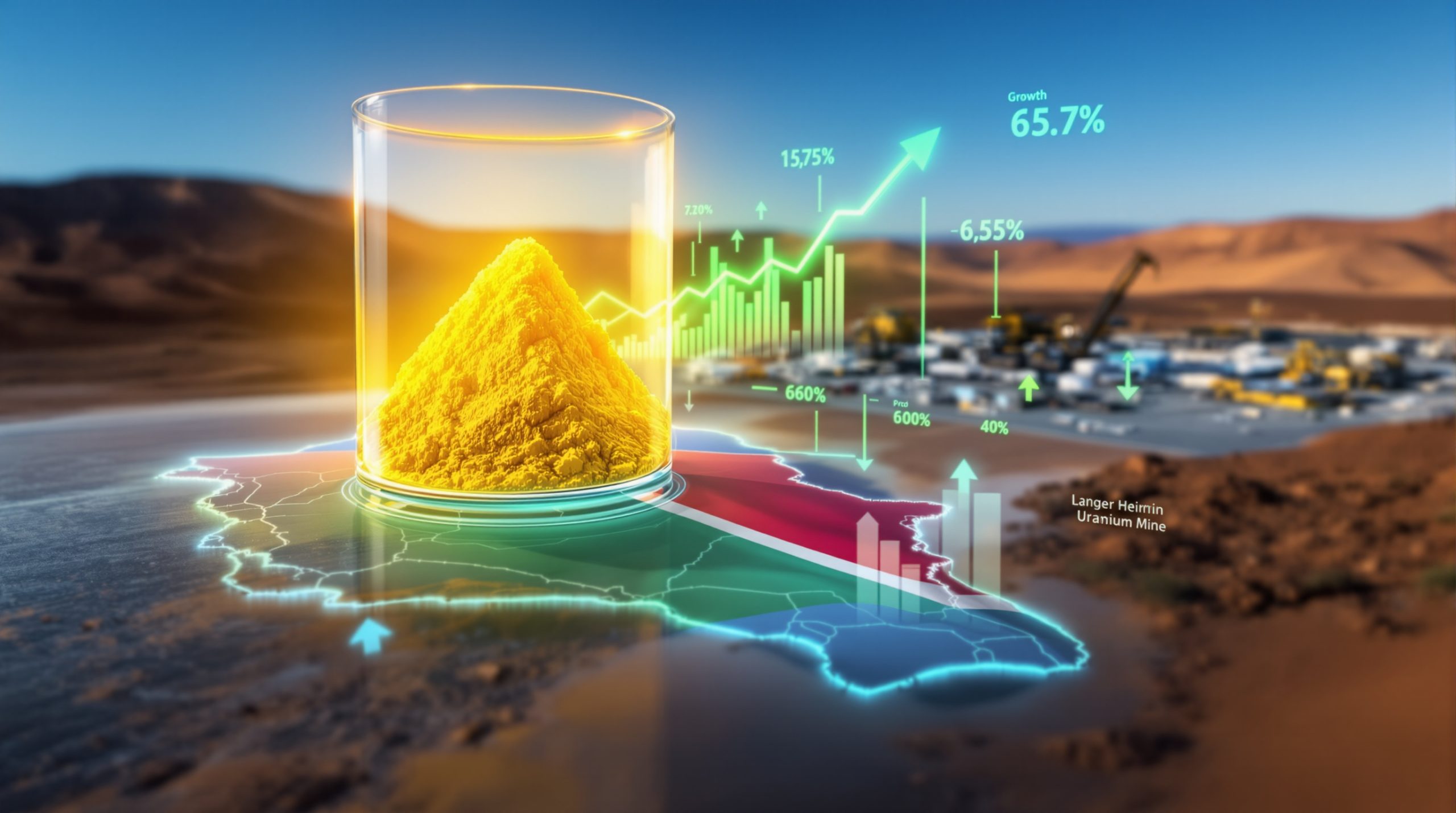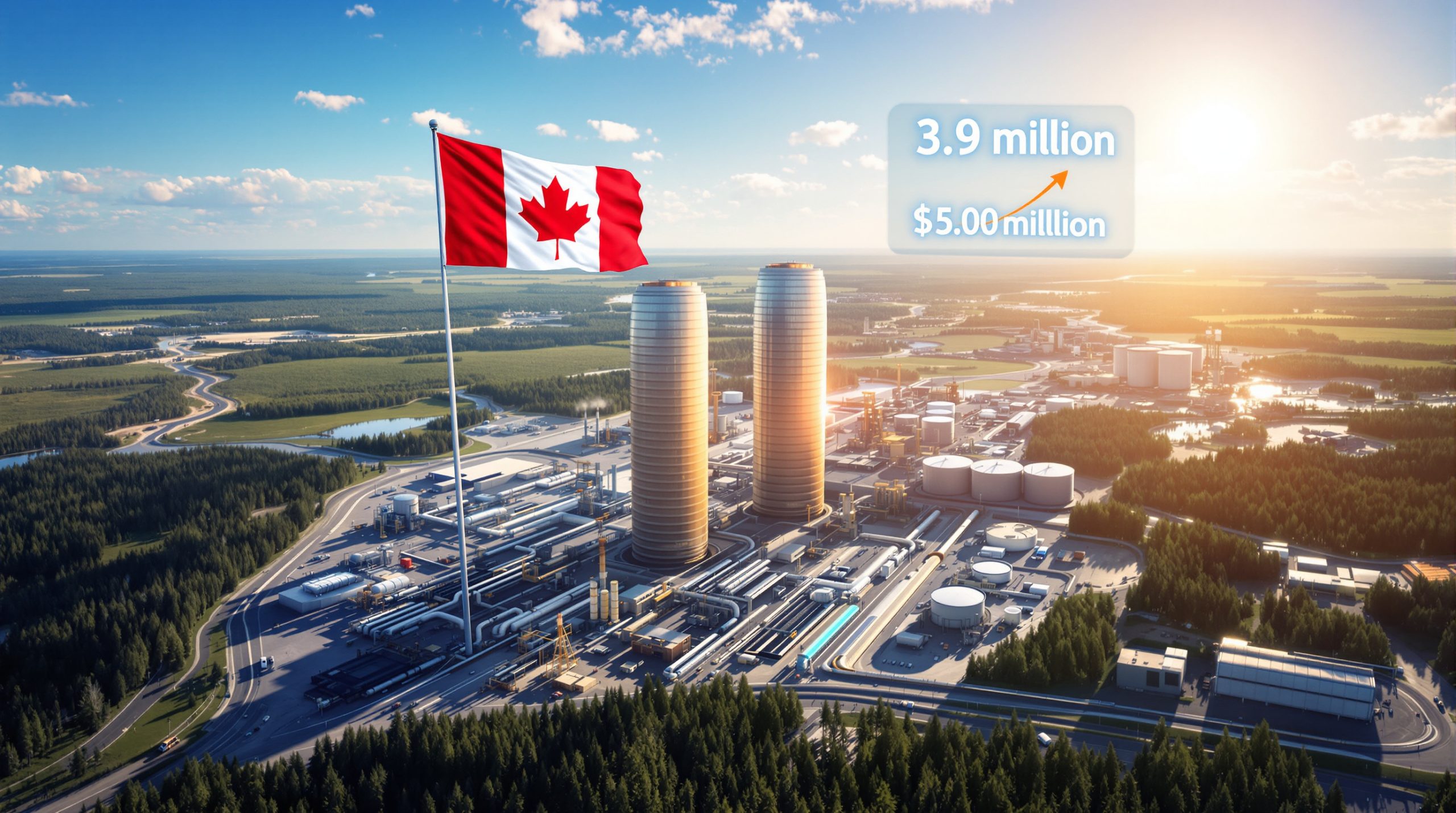Atlantic Lithium's Negotiations with Ghana: Balancing Project Viability Amid Lithium Market Challenges
Atlantic Lithium finds itself at a critical juncture in Ghana as it navigates challenging market conditions while attempting to secure favorable terms for its flagship Ewoyaa Lithium Project. The company's negotiations with the Ghanaian government highlight the delicate balance between resource nationalism and project economics in today's volatile lithium market dynamics.
What is the Ewoyaa Lithium Project?
The Ewoyaa Lithium Project represents Ghana's first major foray into the critical minerals market. Located in the country's southern region, this substantial development contains an impressive 35-40 million metric tons of lithium-bearing ore. This resource base positions Ewoyaa to become one of the top 10 global spodumene concentrate producers once operational.
With a planned annual production capacity of 360,000 tons of lithium, the project has received a 15-year mining lease from the Ghanaian government. This pivotal development was originally scheduled to commence production by late 2024, marking Ghana's debut in lithium production.
The strategic importance of Ewoyaa extends beyond Ghana's borders. As CEO Keith Muller has emphasized, the project represents a "flagship initiative for both the country and region," diversifying global lithium supply chains currently dominated by Australia, Chile, and China. This diversification has become increasingly important as battery manufacturers seek to reduce dependency on a limited number of suppliers.
What makes Ewoyaa particularly notable is its potential role in reshaping West Africa's mining landscape. While the region has long been known for gold production, lithium represents a new frontier aligned with the global energy transition.
Why is Atlantic Lithium Seeking Compromise with Ghana?
The primary driver behind Atlantic Lithium's push for compromise stems from the dramatic collapse in lithium prices, which have plummeted more than 80% from their 2022 peak. This market downturn has fundamentally altered the economic calculations that underpinned the project's initial development timeline.
Compounding these market challenges are Ghana's fiscal terms for the project, which include a 10% free carried interest for the state and a 13% special royalty on gross lithium production revenue. These terms, while designed to ensure Ghana benefits from its natural resources, have become increasingly burdensome in the context of depressed lithium prices.
Project construction has stalled due to delayed parliamentary ratification of the mining agreement, creating a critical impasse. General Manager Ahmed-Salim Adam has been vocal about the "urgent need for revisions to fiscal terms" to ensure project viability under current market conditions.
The combination of regulatory delays and challenging economics has prompted Atlantic Lithium to seek concessions that would allow development to proceed. As Tom Price of Panmure Liberum notes, "producers are facing a perfect storm of price collapse and increasing government demands for revenue sharing."
This situation mirrors challenges faced by other African lithium projects, including Mali's Bougouni development, where operators have similarly sought fiscal relief amid market turbulence. The outcome of Atlantic Lithium's negotiations could establish an important precedent for resource development across the continent.
What Challenges Does the Global Lithium Market Face?
The lithium market's volatility has been extraordinary, with prices plummeting from approximately $80,000 per ton in 2022 to roughly $15,000 per ton by early 2025. This collapse represents one of the most dramatic commodity price corrections in recent memory.
Supply growth has dramatically outpaced demand, with global production expanding by approximately 35% year-over-year in 2024. Major producers in Australia and South America rapidly scaled operations during the price boom, creating significant oversupply conditions that continue to weigh on the market.
Tom Price, a respected industry analyst, summarizes the situation succinctly: "EV-led demand growth remains strong but is overwhelmed by supply." This imbalance has been exacerbated by slower-than-expected electric vehicle adoption in key markets like China and Europe.
Geopolitical factors add another layer of complexity, with U.S. President Donald Trump's proposed 25% tariff on lithium imports threatening to further fragment global supply chains. These tariffs could particularly impact African producers hoping to access the lucrative North American market.
Market conditions have triggered a flight to safety among investors, who increasingly favor established mining jurisdictions during periods of price weakness. This trend disadvantages newer entrants like Ghana, which lack established track records in lithium production.
The industry has responded to these challenges with production curtailments, most notably in Chile where SQM and Albemarle have announced significant output reductions for 2025. However, inventory levels remain elevated, with global lithium stockpiles estimated at approximately 250,000 tons in early 2025.
How is Atlantic Lithium Approaching Negotiations?
Atlantic Lithium has adopted a collaborative stance in its negotiations with the Ghanaian government. CEO Keith Muller has consistently emphasized the importance of "prudent fiscal measures" that balance national interests with project economics.
The company's negotiation strategy focuses on specific adjustments to the fiscal framework, particularly regarding the 13% special royalty rate. Industry experts suggest a sliding-scale royalty tied to market prices could offer a more sustainable approach, similar to models adopted in established mining jurisdictions like Australia.
General Manager Ahmed-Salim Adam has taken a more direct approach, publicly advocating for "urgent revisions to fiscal terms" while maintaining the company's commitment to "working in a spirit of partnership" with Ghanaian authorities. This balanced messaging reflects the delicate nature of the negotiations.
Atlantic Lithium has emphasized its focus on delivering "lasting value for all stakeholders," positioning Ewoyaa as potentially transformative for Ghana's mining sector. The company points to the project's ability to develop local expertise in direct lithium extraction and processing, creating a foundation for further industry growth.
The negotiation approach mirrors successful models used in other jurisdictions, such as Rio Tinto's renegotiation of terms for the Oyu Tolgoi copper project in Mongolia. That case demonstrated how modified fiscal terms could unlock development while still ensuring substantial host country benefits.
International advisors, potentially including World Bank mining specialists, could play a mediating role in these discussions, bringing global best practices to bear on Ghana's emerging critical minerals framework.
What Are the Potential Economic Benefits for Ghana?
Ghana stands to gain substantially from successful development of the Ewoyaa project. As Africa's leading gold producer with approximately 4.2 million ounces produced in 2023, lithium represents a strategic diversification opportunity for the country's mining sector.
The project could generate approximately $500 million in annual export revenue (assuming $1,500 per ton lithium prices), creating a significant new revenue stream for the government. Beyond direct fiscal benefits, Ewoyaa would establish Ghana as a player in the critical battery metals market at a time when secure supply chains are increasingly valued.
Export opportunities to the United States could be particularly valuable, as North American battery manufacturers seek to reduce dependency on Chinese materials. The U.S. Inflation Reduction Act's focus on minerals from free trade agreement partners potentially positions Ghana advantageously.
Perhaps most significantly, the project offers Ghana an opportunity to develop local mining expertise in lithium extraction. This knowledge transfer could be leveraged through formal skills development programs with established Australian lithium ambitions mining firms, building capacity for future projects.
The potential for downstream processing represents Ghana's most transformative opportunity. While initial operations will focus on concentrate production, the country could eventually develop lithium hydroxide conversion capacity, capturing significantly more value from its resources.
Such value addition would require substantial infrastructure investment, particularly in reliable power generation. Ghana's current energy grid would require expansion to support energy-intensive conversion processes, representing both a challenge and development opportunity.
What Market Factors Might Influence Project Outcomes?
Recent market signals offer cautious optimism for Atlantic Lithium's negotiations. A modest lithium price recovery in early 2025 has been driven by normalizing global automotive production and continued EV sales growth, which expanded approximately 30% year-over-year in 2024 according to BloombergNEF.
However, analyst Tom Price and others continue to caution about "persisting oversupply conditions" that could constrain price appreciation through at least 2026. This outlook suggests Atlantic Lithium must secure terms that ensure viability even at lithium prices in the $10,000-20,000 per ton range.
Competition from established lithium producing regions remains intense. Australia's Pilbara Minerals and other major producers enjoy significant cost advantages through established infrastructure and economies of scale that new Africa's critical minerals projects must overcome.
Geopolitical considerations increasingly influence critical minerals investments. The European Union's Critical Raw Materials Act explicitly prioritizes supply diversification, potentially creating opportunities for Ghanaian lithium in European markets if Atlantic Lithium can demonstrate responsible production practices.
Policy responses in other lithium-producing nations may provide models for Ghana. Argentina's recent reduction of lithium export taxes to attract investment represents one approach to maintaining competitiveness during market downturns.
The project's ultimate success will depend on finding fiscal terms flexible enough to accommodate market volatility while ensuring Ghana receives fair value for its resources. A sensitivity analysis suggests project economics remain challenging at lithium prices below $15,000 per ton under the current fiscal regime, highlighting the importance of these negotiations.
FAQ About Atlantic Lithium's Ghana Project
How significant would the Ewoyaa project be globally?
The project is positioned to become one of the top 10 global spodumene concentrate producers, making it a significant new supply source outside the industry-dominant markets of Australia, Chile, and China.
What specific concessions is Atlantic Lithium seeking from Ghana?
While specific concessions weren't detailed publicly, the company is negotiating relief from Ghana's mining revenue framework, particularly regarding the 13% special royalty on lithium production. Industry experts suggest a sliding-scale royalty tied to market prices could be under consideration.
How has the lithium market changed since project planning began?
Lithium prices have fallen more than 80% from their 2022 peak of approximately $80,000 per ton to roughly $15,000 per ton by early 2025, dramatically changing the economic calculations that underpinned the original project development timeline.
What is the current status of the Ewoyaa project?
Construction has stalled due to delayed parliamentary ratification and the lithium price collapse, with the company now seeking fiscal concessions to make the project viable under current market conditions.
Disclaimer: This article contains analysis and forecasts based on current market conditions. Future lithium prices, project economics, and regulatory outcomes may differ from those anticipated. Readers should conduct their own research before making investment decisions related to Atlantic Lithium or the lithium sector.
Ready to Find the Next Major Mineral Discovery?
Discover why early investors in significant mineral discoveries can achieve exceptional returns by exploring Discovery Alert's proprietary Discovery IQ model at their dedicated discoveries page, offering real-time alerts on ASX mineral announcements that could replicate Atlantic Lithium's potential.




